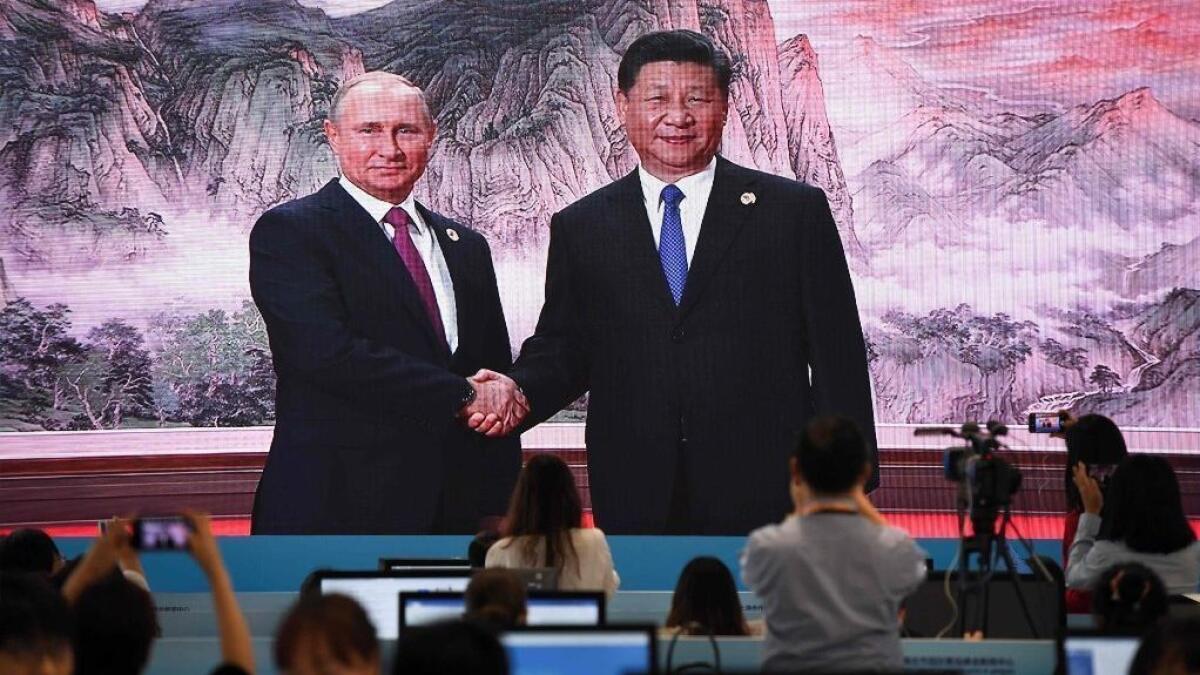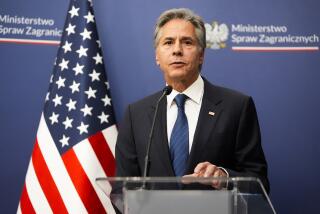Even as Trump advocates for Russia, his administration imposes new sanctions for Moscow’s cyberattacks

Reporting from Washington — Citing “malicious” cyberattacks by Russian government agents, the Trump administration on Monday imposed economic sanctions on several Russian companies and persons accused of supporting Moscow’s spy networks.
The sanctions came even as President Trump suggested Russia be readmitted to the powerful Group of 7 industrialized nations, which would reverse a decision made after the country’s invasion of Ukraine and annexation of Crimea in 2014.
Although Trump has spoken frequently of making Russia a closer ally, his administration has nevertheless imposed numerous sanctions packages for human rights violations, meddling in the 2016 U.S. election and other acts. By a nearly unanimous vote, Congress ordered some of the sanctions, which Trump then enacted only reluctantly.
In Monday’s action, the Treasury Department said it was blacklisting five Russian companies and three Russian citizens, most of whom have supplied material to or worked with Moscow’s Federal Security Service, known as the FSB, the main successor agency to the Soviet Union’s KGB.
All worked on development of “offensive” cyber and underwater capabilities, posing a danger to the security of the United States and its allies, Treasury Secretary Steven T. Mnuchin said.
“The United States is committed to aggressively targeting any entity or individual working at the direction of the FSB whose work threatens the United States,” Mnuchin said.
His comments stood in marked contrast to remarks that Trump made during the G-7 summit over the weekend in Quebec, where he lashed out at traditional allies such as Canada and said Russia ought to be invited to rejoin.
“We have a world to run,” Trump said.
Mnuchin said Russia’s “malign” activities included cyber intrusion into the U.S. energy grid and other infrastructure; an internet-chewing worm called Notpetya that cost several global conglomerates millions of dollars in damage; and the tracking of and possible interference with undersea communications cables that carry most of the world’s telecommunications data.
The blacklisting means any property or assets that the targeted people and companies have in U.S. jurisdiction will be frozen, and U.S. citizens may not do business with them.
Those sanctioned were Digital Security and its subsidiaries ERPScan and Embedi; the Kvant Scientific Research Institute; and Divetechnoservices and three of its executives. The last company was working on a $1.5-million “submersible craft” for the FSB.
Russian President Vladimir Putin, in China for an international conference, did not address the sanctions, but instead focused on Trump’s goodwill. He said he’d be happy to return to the G-7 and looks forward to a separate summit with the American president.
“The U.S. president has repeatedly said that it’s reasonable to hold such a meeting,” Putin said. “As soon as the U.S. side is ready, the meeting will take place, depending, of course, on my working schedule.”
In Moscow, however, other Russian politicians had more antagonistic words. Russian Sen. Konstantin Kosachev said Washington is revealing that its mechanism for punishing Russia is “out of the control of common sense” and looks “more and more unconvincing and ever more pitiful.”
The state-run Ria Novosti news agency quoted Kosachev as saying the sanctions were meaningless “except as an attempt by the radical wing of American politics to use all means to assert U.S. exclusivity in the modern world.”
It was unclear what “radical wing” he was referring to.
Special correspondent Sabra Ayers contributed from Moscow.
For more on international affairs, follow @TracyKWilkinson on Twitter
More to Read
Sign up for Essential California
The most important California stories and recommendations in your inbox every morning.
You may occasionally receive promotional content from the Los Angeles Times.











